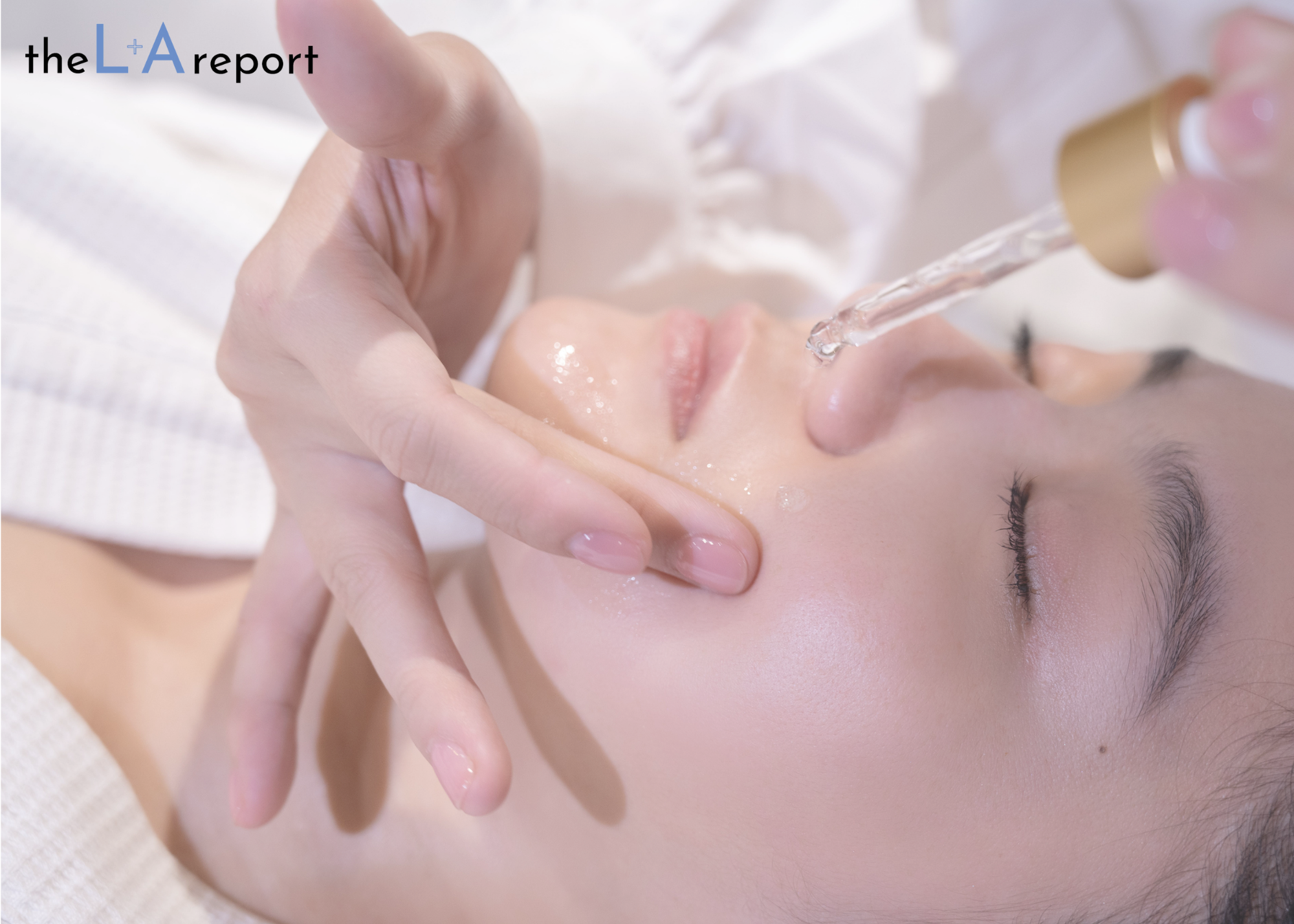As we enter the colder months, many of your clients may start to notice their skin becoming dry, tight, and irritated. For me, my clients start complaining about dehydration in October. This is when I pivot and start using ingredients and modalities that support the skin barrier. Cold-weather skincare becomes especially crucial for those living in colder climates, where the dry air and harsh winds can wreak havoc on the skin’s natural moisture barrier. As an aesthetician who can customize for each season, you are in the perfect position to help your clients combat cold-weather skin challenges, offering professional treatments and sharing expert hydration tips for at-home care.
We are going to dive into pro-level hydration strategies tailored to cold climates, key ingredients that will help keep skin nourished and hydrated, and valuable tips to share with your clients for maintaining skin health during winter months.
4 Reasons Skin Becomes Dry + Dehydrated in Cold Climates
Cold temperatures, low humidity, and the use of indoor heating systems contribute to skin’s lack of moisture during winter. These conditions affect both the skin’s surface and its deeper layers, leading to dryness and dehydration. Here’s how these factors affect the skin:
- Cold Air: Cold air holds less moisture than warmer air, and when exposed to this environment, skin loses its natural hydration.
- Indoor Heating: While heating systems make indoor environments more comfortable, they also strip moisture from the air, exacerbating dehydration.
- Hot Showers: As tempting as they may be in cold weather, hot showers can deplete skin’s natural oils, further contributing to dryness.
- Wind Exposure: Cold winds can strip the skin of its protective moisture, leaving it vulnerable to irritation, redness, and dryness.
As an aesthetician, understanding how these elements affect the skin will help you select the most effective custom treatments for your clients and guide them on maintaining hydration at home.
6 Key Ingredients for Professional Level Hydration
When addressing dry and dehydrated skin in cold climates, choosing the right products with potent, yet gentle ingredients is essential. Here are the top ingredients you should incorporate into your treatments to give your clients the hydration their skin craves:
1. Hyaluronic Acid
This powerhouse ingredient is a must-have in any skincare routine aimed at increasing hydration. Hyaluronic acid is a humectant and the gold standard in hydration, which means it draws moisture from the environment and binds it to the skin. When used in professional treatments, it can help restore moisture to both the surface and deeper layers of the skin. For maximum effect, consider layering hyaluronic acid with a nourishing moisturizer to lock in hydration.
Pro Tip: You can layer a hyaluronic acid serum under a thick, occlusive cream to enhance the effect, particularly for clients with severely dehydrated skin.
2. Ceramides
Ceramides are lipids naturally found in the skin’s barrier, and they help retain moisture by preventing water loss. In cold weather, the skin barrier often weakens, making ceramides an essential addition to your professional treatments. Including products with ceramides in facial masks or creams can support your clients’ skin in restoring its natural moisture barrier and locking in hydration.

January 2025 L+A Report
7 Medical + Spa Skincare Winter Hydration Tips
We’ve got 7 hydration suggestions for your medical or spa skincare business. For 2025 medical and spa skincare professionals can offer home care and in clinic treatments that can boost the winter hydration levels of their clients’ skin!
3. Glycerin
Glycerin is a humectant that works similarly to hyaluronic acid by drawing moisture into the skin. It also helps repair the skin’s natural barrier, making it a great ingredient for clients struggling with dry, cracked skin. Look for glycerin-based products in serums or moisturizers to provide lasting hydration during cold months.
4. Squalane
Squalane, a plant-derived emollient (most common olive oil), helps balance skin hydration and improve the appearance of dry, dull skin. It mimics the skin’s natural oils, which makes it highly effective at replenishing moisture and creating a protective layer that prevents water loss. Squalane is ideal for clients with dry skin that needs both moisture and barrier repair.
5. Vitamin E
Vitamin E is an antioxidant known for its ability to protect the skin from environmental damage, including the harsh effects of cold weather. It also helps keep the skin moisturized by supporting the skin’s natural barrier function. Incorporating products with vitamin E, such as rich creams or oils, can provide added protection against dehydration.
6. Plant-Based Occlusives (Cocoa Butter, Shea Butter, Marula Oil)
Occlusives work by creating a barrier on the skin’s surface, preventing moisture from escaping. During winter, these products can be your best friend in sealing in hydration, especially after applying humectants like glycerin or hyaluronic acid. Heavy balms, creams, and oils with plant-based occlusive ingredients can help keep moisture locked in for hours.
5 Hydration Treatments for Cold Climates
As an aesthetician, offering the right treatments during winter is key to keeping your clients’ skin hydrated and healthy. I recommend facials every 4-6 weeks to maintain the barrier. Consider the following treatments to help replenish moisture during the colder months:
- Deep Hydrating Facials
Offer facials that focus on hydration with ingredients like hyaluronic acid, glycerin, and ceramides. Begin with a gentle cleanser to remove any environmental pollutants or build-up, followed by a gentle exfoliation such as enzymes to remove dead skin cells that may be hindering moisture absorption. Then, apply a hydrating mask rich in humectants, and finish with a deeply nourishing moisturizer that locks in moisture.
Pro Tip: Adding a LED light therapy treatment after a hydrating mask can help enhance product absorption and increase blood circulation, further helping with skin hydration. - Moisturizing Masks
Customizing your facial menu to include deeply moisturizing masks for your clients can make a significant impact during the colder months. Masks containing rich oils, like avocado oil or squalane, can provide deep nourishment and reinforce the skin’s natural barrier. - Nano-channeling with Hyaluronic Acid
For a more advanced treatment, offer microneedling with a hyaluronic acid serum to boost hydration at a deeper level. The micro-channels created by the needles allow for enhanced absorption of hydrating serums, leaving skin plumper and more hydrated. - LED Light Therapy
Incorporating red light therapy can help stimulate collagen production, promote circulation, and improve hydration in dry, winter skin. This non-invasive treatment can complement any facial, making it more effective by encouraging deeper hydration. - Mesotherapy
Mesotherapy is non-needle infusion and is an effective way to push ingredients into the skin to deliver hydration gently. Your clients leave with soft, buoyant skin that is dewy and pliable. Mesotherapy will also make the results of your facial last longer. It helps with strengthening the skin’s barrier and helps eliminate discomfort.

Contribution by Jillian Wright
In 2025, Jillian launched The Business of Skin: Strategies for Solo Aesthetician Success, a comprehensive guide that empowers solo aestheticians to build, scale, and sustain a thriving business by mastering financial strategies, client retention, and operational excellence.
With a lifelong passion for creativity and healthy skin, Jillian Wright quickly realized that facial aesthetics was her calling. After establishing herself as a highly sought-after aesthetician and opening an eponymous NYC-based spa and skincare brand, her entrepreneurial spirit continued to lead her through a 20+ year, multi-faceted beauty career.
Jillian’s undeniable passion for aesthetics has given her the creative liberty to offer advanced non-surgical, non-invasive solutions for those seeking ultimate skin health. She has never been happier.
5 Proven Hydration Tips for Clients to Use at Home
While professional treatments are incredibly effective, it’s essential that your clients continue to care for their skin at home. Here are a few proven hydration tips to share with your clients to help them maintain a healthy, glowing complexion throughout the winter months:
- Use a Humidifier
Encourage clients to use a humidifier in their bedroom to add moisture to the air. This is especially important for those who use central heating, which can dry out indoor air. - Switch to a Richer Moisturizer
Recommend switching to a heavier, more emollient moisturizer during the winter. Look for products that contain oils and ceramides to help prevent moisture loss. - Avoid Hot Showers
Advise clients to steer clear of hot showers and baths, which can strip the skin of its natural oils. Instead, suggest lukewarm water and a gentle, hydrating body wash. - Stay Hydrated from the Inside
Remind your clients that hydration doesn’t just happen topically. Drinking plenty of water is essential for maintaining healthy skin, especially in dry climates. - Gentle Exfoliation
Recommend gentle exfoliation once or twice a week to remove dry, flaky skin without stripping moisture. Be sure to suggest hydrating exfoliants like those with lactic acid or enzymes rather than harsh physical scrubs.
Cold climates present unique challenges to skin hydration, but with the right products and professional treatments, you can help your clients maintain healthy, hydrated skin all winter long. By incorporating key ingredients like hyaluronic acid, glycerin, ceramides, and squalane into your treatments, you can ensure that your clients’ skin receives the nourishment it needs to stay moisturized and protected. In addition, sharing hydration tips for at-home care will empower your clients to keep their skin glowing and well-hydrated in even the harshest winter conditions. With your expertise, you can help your clients embrace the cold-weather months with healthy, radiant skin.
